BMW X1 VS Hyundai IONIQ 6 – Specs, Efficiency & Price Comparison
Which model is the better choice – the BMW X1 or the Hyundai IONIQ 6? We compare performance (326 HP vs 325 HP), boot capacity (540 L vs 401 L), efficiency (0.80 L vs 13.90 kWh), and of course, the price (38200 £ vs 37600 £).
Find out now which car fits your needs better!
The BMW X1 (SUV) is powered by a Diesel, Petrol, Diesel MHEV, Petrol MHEV or Plugin Hybrid engine and comes with a Automatic transmission. In comparison, the Hyundai IONIQ 6 (Hatchback) features a Electric engine and a Automatic gearbox.
When it comes to boot capacity, the BMW X1 offers 540 L, while the Hyundai IONIQ 6 provides 401 L – depending on what matters most to you. If you’re looking for more power, you’ll need to decide whether the 326 HP of the BMW X1 or the 325 HP of the Hyundai IONIQ 6 suits your needs better.
There are also differences in efficiency: 0.80 L vs 13.90 kWh. In terms of price, the BMW X1 starts at 38200 £, while the Hyundai IONIQ 6 is available from 37600 £.
Compare all the key specs now and find out which model fits your lifestyle best!
BMW X1
The new BMW X1 effortlessly blends sporty elegance with practical functionality, making it a standout choice in the compact SUV segment. Inside, the sophisticated cabin design is complemented by high-quality materials and cutting-edge technology, creating a welcoming and advanced driving environment. On the road, the vehicle's agile handling and responsive performance promise an engaging driving experience, whether navigating urban streets or embarking on longer journeys.
details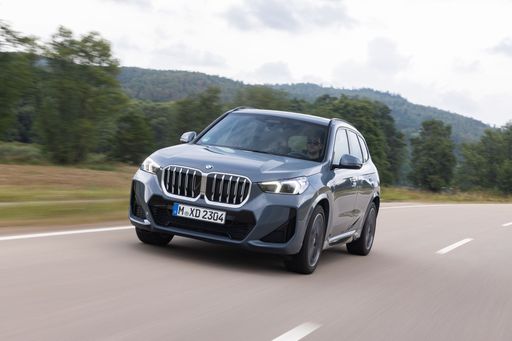 @ press.bmwgroup.com
@ press.bmwgroup.com
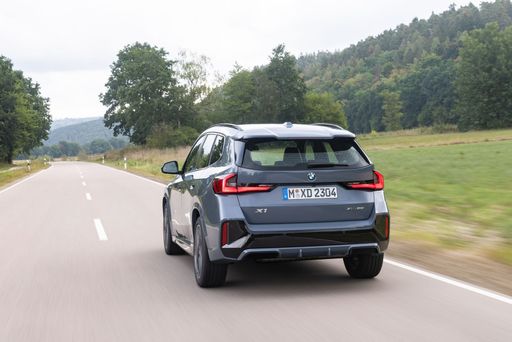 @ press.bmwgroup.com
@ press.bmwgroup.com
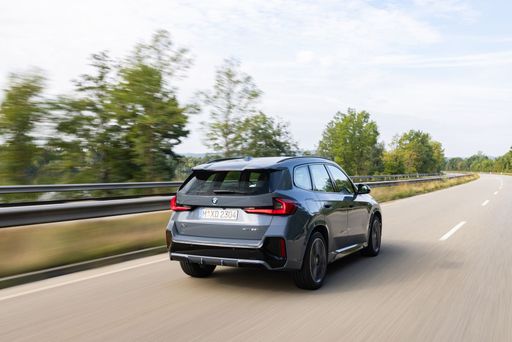 @ press.bmwgroup.com
@ press.bmwgroup.com
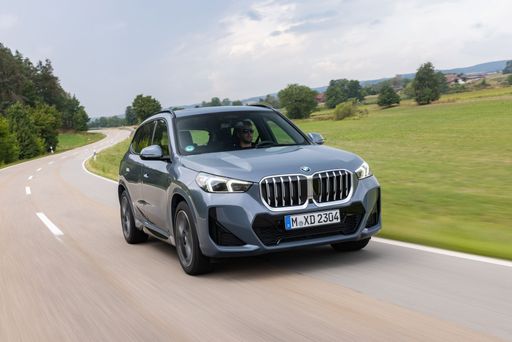 @ press.bmwgroup.com
@ press.bmwgroup.com
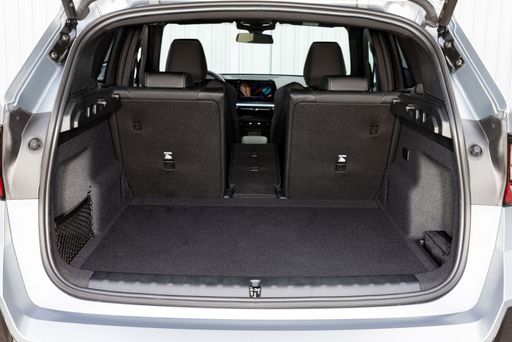 @ press.bmwgroup.com
@ press.bmwgroup.com
Hyundai IONIQ 6
The Hyundai IONIQ 6 merges futuristic design with eco-friendly technology, offering a glimpse into the future of electric mobility. Its sleek silhouette and aerodynamic profile are sure to capture attention on the road, while the interior provides a seamless blend of comfort and cutting-edge digital features. With a focus on efficiency and sustainability, this model represents a significant step forward in the evolution of electric vehicles.
details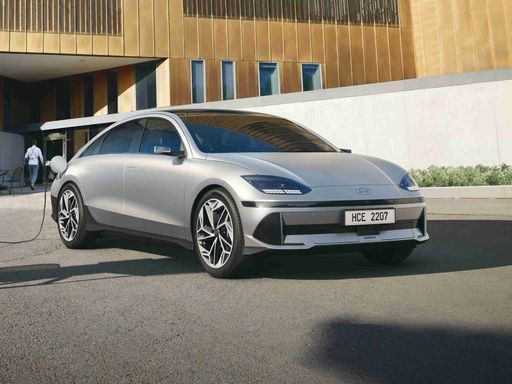 @ hyundai.news
@ hyundai.news
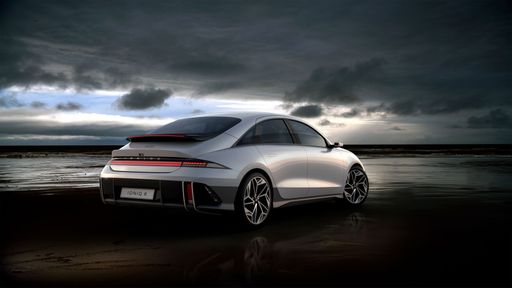 @ hyundai.news
@ hyundai.news
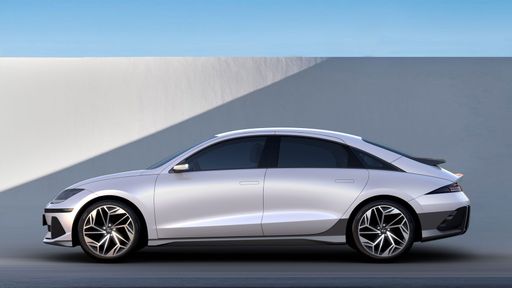 @ hyundai.news
@ hyundai.news
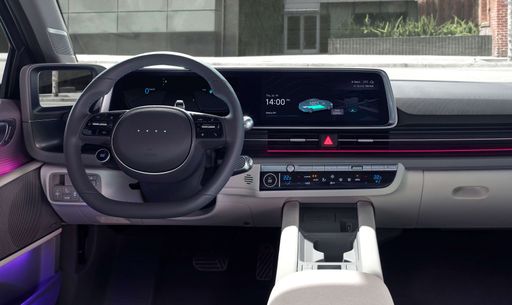 @ hyundai.news
@ hyundai.news

|

|
|
|
|
Costs and Consumption |
|
|---|---|
|
Price
38200 - 55500 £
|
Price
37600 - 55000 £
|
|
Consumption L/100km
0.8 - 7.7 L
|
Consumption L/100km
-
|
|
Consumption kWh/100km
-
|
Consumption kWh/100km
13.9 - 15.1 kWh
|
|
Electric Range
81 km
|
Electric Range
429 - 614 km
|
|
Battery Capacity
14.20 kWh
|
Battery Capacity
53 - 77.4 kWh
|
|
co2
18 - 175 g/km
|
co2
0 g/km
|
|
Fuel tank capacity
47 - 54 L
|
Fuel tank capacity
-
|
Dimensions and Body |
|
|---|---|
|
Body Type
SUV
|
Body Type
Hatchback
|
|
Seats
5
|
Seats
5
|
|
Doors
5
|
Doors
4
|
|
Curb weight
1575 - 1935 kg
|
Curb weight
1850 - 2095 kg
|
|
Trunk capacity
490 - 540 L
|
Trunk capacity
401 L
|
|
Length
4500 - 4505 mm
|
Length
4855 mm
|
|
Width
1845 mm
|
Width
1880 mm
|
|
Height
1622 - 1642 mm
|
Height
1495 mm
|
|
Payload
490 - 500 kg
|
Payload
425 - 430 kg
|
Engine and Performance |
|
|---|---|
|
Engine Type
Diesel, Petrol, Diesel MHEV, Petrol MHEV, Plugin Hybrid
|
Engine Type
Electric
|
|
Transmission
Automatic
|
Transmission
Automatic
|
|
Transmission Detail
Automat. Schaltgetriebe (Doppelkupplung)
|
Transmission Detail
-
|
|
Drive Type
Front-Wheel Drive, All-Wheel Drive
|
Drive Type
Rear-Wheel Drive, All-Wheel Drive
|
|
Power HP
136 - 326 HP
|
Power HP
151 - 325 HP
|
|
Acceleration 0-100km/h
5.4 - 9.2 s
|
Acceleration 0-100km/h
5.1 - 8.8 s
|
|
Max Speed
190 - 250 km/h
|
Max Speed
185 km/h
|
|
Torque
230 - 477 Nm
|
Torque
350 - 605 Nm
|
|
Number of Cylinders
3 - 4
|
Number of Cylinders
-
|
|
Power kW
100 - 240 kW
|
Power kW
111 - 239 kW
|
|
Engine capacity
1499 - 1998 cm3
|
Engine capacity
-
|
General |
|
|---|---|
|
Model Year
2023 - 2024
|
Model Year
2022
|
|
CO2 Efficiency Class
D, E, B, F
|
CO2 Efficiency Class
A
|
|
Brand
BMW
|
Brand
Hyundai
|
BMW X1
The New BMW X1: A Fusion of Innovation and Performance
For those in search of a luxury SUV that masterfully combines technical innovation with driving pleasure, the BMW X1 stands as a paragon of design and engineering excellence. As part of the competitive compact SUV segment, the BMW X1 offers a robust array of features targeted towards both the tech-savvy and the driving enthusiast.
Advanced Engine Options
The BMW X1 delivers a versatile range of powertrains to suit the specific needs of different drivers. From the efficient diesel engines to cutting-edge plug-in hybrid variants, there’s a model for every preference. The diesel variants, including mild-hybrids, provide a balance between fuel efficiency and power delivery. Petrol engines, on the other hand, offer spirited performance with a more traditional feel.
Efficiency Meets Performance
The BMW X1's remarkable range of power, from 136 PS to an impressive 326 PS, caters to diverse driving needs. Models fitted with mild-hybrid technology afford drivers reduced fuel consumption and emissions, with the plug-in hybrid leading the field in eco-efficiency with consumption figures as low as 0.8 L/100km and an electric range of up to 83 km.
Technological Innovation
Stepping inside the BMW X1, drivers are greeted with an intuitive cockpit, seamlessly integrating the latest BMW technology. An advanced infotainment system offers connectivity at the touch of a button, while an array of driver assistance systems ensure that safety and convenience are at the forefront.
Design and Comfort
The BMW X1 exudes a powerful presence on the road with its refined SUV aesthetics. Offering substantial interior space, it comfortably accommodates up to five passengers with ample boot capacity ranging from 490 to 540 litres. BMW also offers various trim levels, including the luxurious M Sport package, that enhance both the aesthetic and dynamic appeal.
Dynamic Driving Experience
BMW enthusiasts will appreciate the dynamic handling characteristics synonymous with the brand. Whether it's the front-wheel drive or the xDrive all-wheel system, the BMW X1 delivers responsive handling and a smooth driving experience, making it ideal for both urban and motorway driving scenarios.
Conclusion
The BMW X1 raises the bar for compact SUVs, offering a harmonious blend of innovation, efficiency, and driving pleasure. For those seeking a vehicle that stands out both in terms of aesthetics and technology, the X1 is undoubtedly a worthy contender.
Hyundai IONIQ 6
Introducing the Hyundai IONIQ 6: A New Era of Electric Mobility
The Hyundai IONIQ 6 is more than just a car; it's a glimpse into the future of electric mobility. With cutting-edge technology, impressive performance, and a sustainable design, this vehicle stands as a beacon for the automotive industry's electric revolution. Let's delve into what makes the IONIQ 6 a standout choice in the rapidly growing electric vehicle market.
Performance and Power: The Heart of the IONIQ 6
The Hyundai IONIQ 6 offers two battery options – a 53 kWh version and a more powerful 77.4 kWh variant. Depending on the configuration, drivers can experience a power output ranging from 151 PS to a remarkable 325 PS, highlighting the versatility of this model. With a maximum torque of up to 605 Nm, acceleration from 0-100 km/h is achieved in just 5.1 to 8.8 seconds, catering to both efficiency enthusiasts and those with a penchant for speed.
Efficiency and Range: Long Journeys Made Easy
One of the IONIQ 6's standout features is its exceptional range. Offering an electric range between 429 km to an impressive 614 km on a single charge, it's designed to go the distance. Efficiency is at the forefront, with energy consumption between 13.9 kWh/100km and 15.1 kWh/100km, ensuring that your driving experience remains as eco-friendly as it is enjoyable. All variants boast a CO2 efficiency class of A, reflecting Hyundai's commitment to sustainability.
Design and Interior: Luxury Meets Sustainability
The IONIQ 6's sleek, aerodynamic design is not only visually stunning but also functional, reducing air resistance to maximise efficiency. Offering a hatchback style, it comfortably seats five, ensuring ample space for passengers and luggage. The interior is crafted with sustainable materials, combining advanced technology with an eco-conscious ethos. With a boot capacity of 401 litres, it seamlessly balances practicality with style.
Technology and Innovation: Driving into the Future
Packed with the latest automotive technologies, the IONIQ 6 integrates the future of driving with present-day conveniences. It features a state-of-the-art automatic transmission with a reduction gearbox that ensures smooth driving dynamics. Its advanced driver assistance and safety systems provide peace of mind on every journey, making it an ideal choice for progressive drivers who embrace technology.
Conclusion: A Competitively Priced Electric Option
The Hyundai IONIQ 6 offers an enticing blend of performance, range, and sustainability. With prices ranging from €43,900 to €64,200, it represents excellent value for an electric vehicle of its calibre. Monthly costs are competitively set between €1066 to €1379, while cost per km ranges between 42.7 to 55.2 cents, appealing to cost-conscious customers without compromising on quality or innovation. The IONIQ 6 is a triumph of modern engineering, making it a strong contender in the electric vehicle market.
The prices and data displayed are estimates based on German list prices and may vary by country. This information is not legally binding.
